Last Updated on October 12, 2021

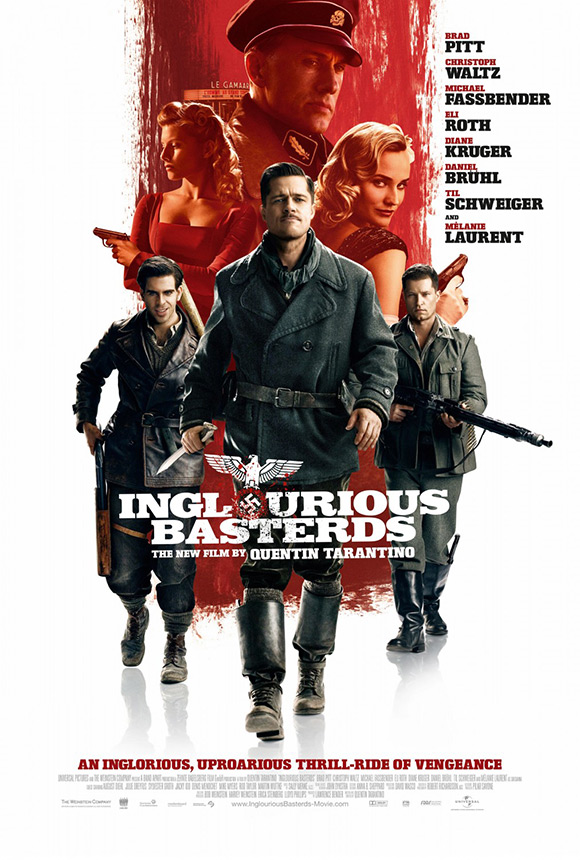
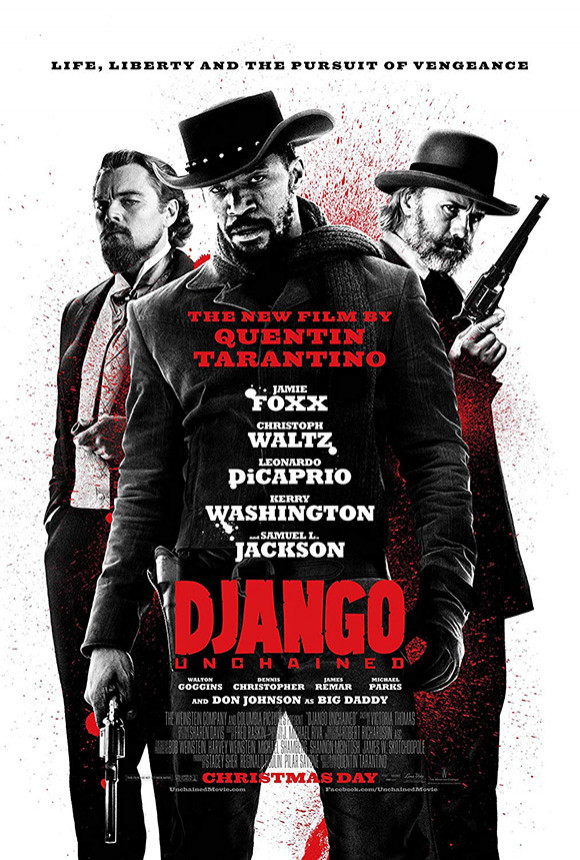
Nice to see you again, fans of the cinema! This is the Face-Off, where two movies enter and both movies leave, but one leaves in a slightly better light. Yes, here we take two competitors and compare their key elements and see who comes out the champion. It's a fierce competition that results in blood, tears, and online arguments, but the more brutal the battle, the sweeter the victory.
This week is a big one for movie fans everywhere, as director Quentin Tarantino reveals his newest movie, ONCE UPON A TIME IN…HOLLYWOOD. The movie promises to have all the hallmarks of a Tarantino film, like a top-notch cast, crisp dialogue, an epic-sized runtime and much more. Every time a filmmaker puts out a new movie it causes film buffs everywhere to look back on his canon and rank their favorites, and this week we will be looking at two of his most successful entries in the World War II flick INGLOURIOUS BASTERDS and the Spaghetti Western, DJANGO UNCHAINED.
The former marked the director's most successful entry since the one that made him a force to be reckoned with, PULP FICTION, resulting in his biggest box office numbers yet and bringing him back to the Academy Awards. He then kept the ball rolling with his follow-up feature, DJANGO UNCHAINED, a Western (or as he would call, a "Southern") with blaxploitation elements, this remains his most controversial film to date, but is no doubt seen as a masterpiece, and one that earned the largest box office total of all his films and, again, earned a bevy of awards.
Both of these movies represent some of the best of the director's trademark style, from tremendous scripts to pools of blood, and now it's time to find out which Tarantino comes out on top.
Brad Pitt as Aldo Raine
Christoph Waltz as Hans Landa
Mélanie Laurent as Shosanna
Eli Roth as Donny Donowitz
Michael Fassbender as Archie Hicox
Daniel Bruhl as Frederick Zoller
Diane Kruger as Bridget von Hammersmark
Til Schweiger as Hugo Stiglitz
B.J. Novak as Smithson Utivich
Omar Doom as Omar Ulmer
Sylvester Groth as Joseph Goebbels
Martin Wuttke as Adolf Hitler
August Diehl as Dieter Hellstrom
Denis Menochet as Perrier LaPadite
with Mike Myers as Ed Fenech
Jamie Foxx as Django Freeman
Christoph Waltz as Dr. King Schultz
Leonardo DiCaprio as Calvin J. Candie
Kerry Washington as Hildi
Samuel L. Jackson as Stephen
Walton Goggins as Billy Crash
Dennis Christopher as Leonide Moguy
James Remar as Ace Speck/Butch Pooch
Laura Cayouette as Lara Lee Candie-Fitzwilly
with Don Johnson as Big Daddy
and Franco Nero as Amerigo Vessepi
When you think about Tarantino doing a war movie you wouldn’t be wrong in picturing something akin to what he would do in DJANGO, like an over-the-top, stylistic, violent adventure story with fountains of blood. Sure, the blood is still there, and with BASTERDS Tarantino crafts a movie that is filled with genre flourishes but feels so refined and precise, especially in staging some of his best dialogue-driven moments and composing some of the most striking shots of his career. That all stems from the fact that within this World War II story are complex characters with rich personalities and strong motivations, and Tarantino is far more interested in exploring them more than centering on action and gore. Take a look at his opening scene, which finds villain Hans Landa questioning Perrier La Padite in his farmhouse. Tarantino has always been one to be able to make a conversation between two people more entertaining than most blockbusters, and with credit going to his script and the work of the two men on screen, he manages to get so much out of the exchange by using a variety of shots to make the most of the characters and the simple setting. The conversation is deceptively casual, and Tarantino keeps it that way by using two-shots to show the men just sitting and having a conversation. It’s almost inviting, if not for what Landa is saying, which further keeps the viewer on their toes by emphasizing how charming he is, despite his despicable intent. Tarantino ropes us in with this stirring back and forth, all of a sudden hitting the turn hard with close-ups of the men’s emotional shifts, Landa becoming cold and exacting, and La Padite ashamed of how he’s been, essentially, fooled. BASTERDS is filled with scenes like this, where Tarantino is so confident in his actors and script that his scene construction all perfectly enhances every emotional turn and calmly shifts the tone and takes the viewer for a loop. While masterfully juggling all these characters he gets so much out of such simple scene work, where despite how little physical action there is nothing is any less thrilling. When he does get into the nitty-gritty, he has a blast playing with history, leaning into the madcap violence during the theater massacre and relishing the Basterds’ brand of violence as they treat Nazi villains mercilessly. He films these characters in a way that gives them a heroic stature, like Donny “The Bear Jew” emerging from the bunker, bat in hand, or Shosanna preparing for the German movie premiere like a costumed hero suiting up for a night of vigilantism. However, Tarantino would then bring a lot of that to DJANGO, which finds him pushing his own boundaries to incredible effect.
Tarantino has said that in doing DJANGO UNCHAINED he wanted to make a movie that confronted America's deplorable past, particularly as it pertains to slavery. But of course, he’s not going to tackle it as some inspirational drama like Steve McQueen would do two years later with 12 YEARS A SLAVE. Tarantino is going to Tarantino, and that means pulling from genre fare like Spaghetti Westerns, like that from Sergios Leone and Corbucci, and blaxploitation movies of the 70s. The end result is a movie that, perhaps as well as PULP FICTION, best encapsulates what a Tarantino movie is – including his cinematic inspirations, lengthy runtime, propulsive, squeamish violence, perfectly-honed dialogue, stylistic flourishes and examples of where he may be indulging all of it a bit too much while ensuring it remains endlessly entertaining. All of that is here, but what I take away from it each time is how he uses his trademarks to explore something far deeper than any of his past movies can go. While courting controversy (I mean, more than he had before) by exploring slavery in America as a piece of pulp entertainment, Tarantino effectively approaches all the ugliness of the era in ways only he can – using unrestrained violence to portray white slave owners as monolithic villains, while then flipping it to give them their just deserves. Take the treatment of runaway slave d'Artagnan, who is savagely ripped apart by dogs after saying he can no longer fight for Calvin Candie. It’s brutal, unflinching, and far from entertainment. As it’s happening Tarantino avoids indulging in the act, instead cutting to the faces of other slaves who can’t bear to look on, all while Candie uses it as a way to get under Django’s skin, who no doubt is hiding rage behind his slick sunglasses. On the other end of things, the movie becomes as exciting and gleefully bloody as past efforts like KILL BILL when Django and Shultz get to exact revenge on the white slavers, like during the massacre at Candie-Land, with Django shooting any number of holes into the villains, erupting in geysers of blood. This tonal shift between violence – emphasizing the brutality and impact when it's horrific, and the utter entertainment when its righteous and earned – is just one example of Tarantino working at his boldest and most complex here. He also manages to unearth more romance and pure emotion than past movies, makes use of stunning cinematography from Robert Richardson and makes the movie’s near three-hour runtime feel like a breeze. He does provide a double-edged sword in his use of the N-word, which while being used heavily by the movie’s most deplorable folk to further bring out their nastiness, it's also used to the point where it seems almost too indulgent, as if even people back then wouldn’t say it as liberally as characters do here. But what I ultimately love about Tarantino’s work here is that he represents a filmmaker so confident in his style and approach while tackling no doubt his heaviest material, which makes this his most daring and triumphant outing yet.
So many war movies stick to the story basics of the genre, wherein the righteous side of the Allies must overcome the might and tyranny of the Nazis, and what's genius about Tarantino's script is how confidentially he takes everything we expect as viewers and turns BASTERDS into a genre-bending work of art. As I said above, his script is so much more interested in exploring the characters and how they plot and interact with each other and opposing sides. Mostly sacrificing typical war movie action, the movie lives in endlessly engaging conversations, with Tarantino's unsurpassed knack for dialogue and crafting personalities carrying scenes between shifting tones, the strongest scenes written with a depth and pacing that could make them stand on their own as individual short films. That opening scene alone is my favorite scene he's ever filmed and written, with Tarantino introducing us to a different kind of Nazi (Landa), having him operate and control the scene on an intellectual level, beyond pure Nazi cruelty, lowering our defenses as an audience only to drop us into the unexpected “Oh shit” moment.
In this same way, Tarantino's writing balances numerous characters and plot strands like a seasoned trapeze artist, guiding characters towards one result — the destruction of the Nazi regime — in delightfully wild and often intense ways that ensures nary a scene feels wasted. It's an adventurous story told through compellingly written and staged sequences of dialogue, digging into the psychology of different sides of the war. You have the Allies, brought to life by the Basterds and English agent Archie Hicox; you have Shosanna, a Jewish woman who only just escaped the wrath of the Nazis and seeks revenge, and; we have the Nazis themselves, and while there are lots of them, the most devilish and well-formed is Hans Landa, who is written to dominate every scene. Pure and simple, Tarantino's script is a masterclass of juggling characters within a single story framework, and not since PULP FICTION had he delivered such an engaging cast of colorful characters wherein each come with their own compelling mythos, their scenes have their unique style and energy, and the dialogue exchanges are among the best he's ever written. As a piece of genre-bending writing where Tarantino had just as much fun creating bouts of violence as he did building tension in conversation, the man has perhaps done no better.
With DJANGO UNCHAINED Tarantino took a different approach to storytelling — at least compared to his other stories — wherein he crafted a singular, straight narrative where we follow the same two characters, making no use of individual chapters. The story of Django and Shultz teaming up to be bounty hunters, eventually going on a quest to save the former's wife, Broomhilda (“Hildi”), plays like a Western (or as Tarantino labeled it, a “Southern”) odyssey. It's a more direct way to storytelling than BASTERDS, which bounces between settings and characters to get from A to Z, but here we stay solely on the main two characters. For this story that's a perfect model of storytelling, given that this is all about Django finding his lady love, with Shultz as his mentor, so we need to stay on them and feel their journey across the whole movie. If you can stomach some of the harshest language Tarantino has ever written — all in the name of crafting the vicious world we're watching — this is yet another masterful example of Tarantino crafting characters and putting them in a room together and letting sparks fly. Keeping on the two main characters is no doubt the best way of going about the story, even if it means the entirety of the movie doesn't have that same shifting, unexpected progression that BASTERDS does. Django and Shultz's journey is always entertaining and finds Tarantino working at his boldest, but it doesn't have that same energy and wealth of rich characters that make it so scenes can put you in different places and with different people, yet still feel captivating and funny while keeping the story moving. As brilliant as a script as DJANGO is, filled with dark humor and sharp-tongued dialogue, it can feel slightly — ever, ever so slightly — feel a bit too stuck in one place as the characters move from one story beat to another.
Bits:
Opening Scene/Hans Landa's Interrogation
Attacking Floorboards
Meet the Basterds
Hitler's Metldown
Hugo Stiglitz
The Bear Jew
Lunch With Goebbels
Landa and Strudel
A Very English Plan (feat. Mike Myers)
Basement Bar
Underground Shootout
Shosanna Suits Up
Italian Lesson
Killing Von Hammersmark
Landa's Bargain
Burn it Down!
Landa Get His Mark
Lines
Raine: “And the German will be sickened by us, and the German will talk about us, and the German will fear us. And when the German closes their eyes at night and they're tortured by their subconscious for the evil they have done, it will be with thoughts of us they are tortured with. Sound good?”
Basterds: “Yes, sir!”
Raine: “That's what I like to hear. But I got a word of warning for all you would-be warriors. When you join my command, you take on debit. A debit you owe me personally. Each and every man under my command owes me one hundred Nazi scalps. And I want my scalps. And all y'all will git me one hundred Nazi scalps, taken from the heads of one hundred dead Nazis. Or you will die tryin'.”
—–
Raine: “You probably heard we ain't in the prisoner-takin' business; we in the killin' Nazi business. And cousin, business is a-boomin'.”
—–
Landa: “Oooh, that's a bingo! Is that the way you say it? “That's a bingo?”
Raine: “You just say “bingo.”
Landa: “Bingo! How fun! But, I digress. Where were we?
—–
Raine: “Well, I speak the most Italian, so I'll be your escort. Donowitz speaks the second most, so he'll be your Italian cameraman. Omar speaks third most, so he'll be Donny's assistant.”
Ulmer: “I don't speak Italian.”
Raine: “Like I said, third best. Just keep your fuckin' mouth shut. In fact, why don't you start practicing, right now!”
—–
Hitler: “NEIN, NEIN, NEIN, NEIN, NEIN, NEIN!”
—–
Hicox: “I was saying that that makes two of us. I've had a gun pointed at your balls since you sat down.”
—–
Landa: “I have no doubt. And yes, some Germans will die, and yes, it will ruin the evening, and yes, Goebbels will be very, very, very mad at you for what you've done to his big night… but you won't get Hitler, you won't get Goebbels, you won't get Göring, and you won't get Bormann. And you need all four to win the war. But if I don't pick up this phone right here, you may very well get all four… and if you get all four, you'll end the war… tonight.”
—–
Raine: “Yeah, they made that deal, but they don't give a fuck about him. They need you.”
Landa: “You'll be shot for this!”
Raine: “Nah, I don't think so. More like chewed out. I've been chewed out before.”
—–
Donowitz: You know, Lieutenant, you're getting pretty good at that.
Raine: You know how you get to Carnegie Hall, don't ya? Practice.
—–
Raine: “I mean, if I had my way… you'd wear that goddamn uniform for the rest of your pecker-suckin' life. But I'm aware that ain't practical, I mean at some point you're gonna hafta take it off. So. I'm 'onna give you a little somethin' you can't take off.”
—–
Landa: “I didn't think so. You don't like them. You don't really know why you don't like them; all you know is you find them repulsive. Consequently, a German soldier conducts a search of a house suspected of hiding Jews. Where does the hawk look? He looks in the barn, he looks in the attic, he looks in the cellar, he looks everywhere he would hide. But there's so many places it would never occur to a hawk to hide. However, the reason the Führer has brought me off my Alps in Austria and placed me in French cow country today is because it does occur to me. Because I'm aware what tremendous feats human beings are capable of once they abandon dignity.”
—–
Landa: “I love rumors! Facts can be so misleading, where rumors, true or false, are often revealing.
—–
Shosanna: I have a message for Germany…That you are all going to die…And I want you to look deep into the face of the Jew that is going to do it!
—–
Landa: Sitting in your chair, I would probably say the same thing. And 999 point 999 times out of a million, you would be correct. But in the pages of history, every once in a while, fate reaches out and extends its hand. What shall the history books read?
—–
Hellstrom: “I wasn't speaking to you, Lieutenant Munich. Or you either, Lieutenant Frankfurt. I was speaking to Captain I-don't-know-what.”
Bits
Opening Credits
Dr. King Makes a Deal
King Guns Down the Sheriff
Big Daddy
Django Kills the Brittles (er, Schaffers)
Issues with the Bags
Raid Gone Wrong
Bounty Hunting
Calvin Candie
Candie-Land/Stephen
Reunited
Stephen and Calvin
Old Ben's Skull
King's Last Move
Massacre at Candie-Land
Django Tricks LeQuint Dickey Boys
Django Destroys Candie-Land
Lines
Django: “I like the way you die, boy.”
—–
Stephen: “DJANGO! You uppity son of a b…”
—–
Vessepi: “Can you spell it?”
Django: “D-J-A-N-G-O. The D is silent.”
Vessepi: “I know.”
—–
Schultz: “How do you like the bounty hunting business?”
Django: “Kill white people and get paid for it? What's not to like?”
—–
Shultz: “You sure that's him?”
Django: “Yeah.”
Schultz: “Positive?”
Django: “I don't know.”
Schultz: “You don't know if you're positive?”
Django: “I don't know what 'positive' means.”
Schultz: “It means you're sure.”
Django: Yes.”
Schultz: “Yes, what?”
Django: “Yes, I'm sure that's Ellis Brittle.”
—–
Schultz: “You silver tongued devil, you.”
—–
Candie: “Gentlemen, you had my curiosity, now you have my attention.”
—–
Django: “Hey, little troublemaker.”
—–
Django: “Hey, Snowball. You wanna know my name or the name of my horse, you ask me.”
Stephen: “Just who the hell you callin' 'Snowball,' hoss boy? I'll snatch yo black ass off dat nag down here in the mud so fast make yo head spin!”
—–
Django: “Does Siegfried save her?”
Schultz: “Quiet spectacularly so. He scales the mountain, because he's not afraid of it. He slays the dragon, because he's not afraid of him. And he walks through hellfire… because Broomhilda's worth it.”
—–
Betina: “So, you really free?”
Django: “Yeah, I is free.”
Betina: “So, you wanna dress like that?”
—–
Candie: “Now bright boy, I will admit you are pretty clever. But if I took this hammer here and I bashed it in your skull, you would have the same three dimples in the same place as old Ben.”
—–
Jonah Hill Baghead: “Shit. I just made mine worse. Anybody bring any extra bags?”
Unnamed Baghead: “No! Nobody brought an extra bag!”
—–
Shultz: “Mister Candie, normally I would say “Auf wiedersehen,” but since what “auf wiedersehen” actually means is “'till I see you again”, and since I never wish to see you again, to you, sir, I say goodbye!”
—–
Django: “He just ain't used to seein' a man ripped apart by dogs is all.”
Candie: “But you are used to it?”
Django: “I'm just a little more used to Americans than he is.”
—–
Crash: “D-Jango! You black son of a bitch!”
Django: “The “D” is silent, hillbilly.”
—–
Crash: “Oh, I'ma go walkin' in the moonlight with you!”
Django: “You wanna hold my hand?”
—–
Originally wanting Ennio Morricone to compose the whole soundtrack for the movie (he was unable to), Tarantino did as he always does and assembled a soundtrack of classic movie scores and songs to flesh out BASTERDS' soundtrack. Included are pieces from Morricone, Charles Bernstein, Elmer Bernstein, Nick Perito and, yes, even a bit of David Bowie, and together they make for a soundtrack that lends to BASTERDS' everything from a sweeping, classic sound (Pietro's opening “The Green Leaves of Summer”), to nail-biting tension, (Charles Bernstein's “Bath Attack”) and raw energy (Morricone's “Battle of Algiers” theme and Billy Preston's “Slaughter”). Tarantino perhaps loves his music as much as he loves his movies, and I quite love how by pairing more visceral tracks with equally visceral scenes he ensures that both leave a strong imprint. Notable examples include Morricone's “L'incontro Con La Figlia” for when a young Shosanna is running for her life, Preston's “The Surrender” when Donny is beating that Nazi to death with his bat, or when Tarantino lets the pop power of Bowie's “Cat People” play as Shosanna gets ready to exact her revenge. Such unique moments, all powerful for vastly different reasons, and all because their music cues are so distinct and hit the perfect notes.
With DJANGO UNCHAINED you can tell Tarantino was going for something a bit bolder with his music, something to lend itself to the sweeping landscape and to hit the emotional beats. In the DJANGO soundtrack, you have more pieces taken from classic movies and original hip-hop tracks to give the movie a sweeping sound and its voice. Kicking things off is that dominating “Django” track by Rocky Roberts and Luis Bacalov, used the classic Sergio Corbucci movie of the same name. Of course, you got more Morricone, like his tracks “The Braying Mule,” “Sister Sara's Theme” (one of the more tender tracks) and more. With DJANGO UNCHAINED, the use of music certainly paints a picture of the era and lends that much-needed Western sound, but then takes things down a more energetic and hard-hitting root with the rap and R&B tracks, like Rick Ross and Jamie Foxx's “100 Corpses” and John Legend's “Who Did That To You?” I admire Tarantino seeking out the work of modern artists to lend their voices to the soundtrack, and it all does the job of making UNCHAINED's soundtrack one of the more distinct in Tarantino's canon. But in the case of how the music works in the movie, it doesn't quite achieve that same level of varied, profound perfection as BASTERDS. It's sweeping and atmospheric and brings to life his grand story, but the music he assembled on BASTERDS is simply more effective in more ways.
Col. Hans Landa…the sly, dastardly, compelling, cerebral, and undeniably charming Hans Landa. Tarantino has written so many terrific characters over the years, and Landa may just be his best. Whereas Nazis in movies have been depicted as being vicious and exactingly evil, Landa is not so bluntly cruel as he is measured and meticulous in how he hunts down people. Waltz dominates every scene as Landa, naturally bringing to life the character's ability to walk into any room and absorb all the attention like a sinister beacon. Despite the things he's saying and the malicious intent, he is nonetheless compelling and affable, which makes his all the more a unique and distinct villain. He's made more complex when he's so ready to abandon the Nazi cause if it means getting a better deal from the Americans. Being that kind of realist makes him a different kind of evil, one who would further the Nazi cause simply because it was the smartest option he could take. Also laced throughout are numerous side baddies, like Major Hellstrom, who has cocksure villainy about him that owns the scene when he intrudes on the tavern discussion. There's also the cartoonishly despicable Goebbels and Adolf Hitler, the latter written like a manic, vicious goofball who dons a cape and has temper tantrums. Nazis are perhaps the greatest villains of both history and movies, and here Tarantino has his fun playing his both, making for his best cavalcade of on-screen baddies
Much like with the Nazis in BASTERDS, the villains in DJANGO seem to be everywhere, as all manner of insensitive Southern folks spout racial epithets every other word, with Django and Shultz encountering one slick-talking Southern fool after another. Of course, after a certain point, it hones in on one major villain in Calvin Candie, the molasses-mouthed honcho of the Candie-Land plantation. DiCaprio delivers one of his best performances ever by giving Candie an almost fantastical air of Southern superiority, a man who chews on his ivory cigarette holder and relishes every drawn-out “WH-ite cake.” He's not as complex a villain as Landa, nor does he get to leave his mark on the movie as a whole, but DiCaprio gets so much mileage out of the deliciously evil Candie, seamlessly shifting him from a man of Southern hospitality to a pure wave of righteous anger. DiCaprio is absorbing and unhinged, and almost gives Landa a run for his money. Also terrific is Samuel L. Jackson as Stephen, a slave who has been so warped after being so close to the Candie family that he is just as vicious towards other slaves as the white people are. It's his best work in a Tarantino movie other than PULP FICTION, being both purely despicable and sometimes oddly funny. These two actors are great, but Landa is by himself one of the greatest movie villains ever to hit the screen and it's hard to compete with Waltz's movie-stealing work
Awards
Oscars:
- Won – Best Supporting Actor – Christoph Waltz
- Nominated – Best Picture
- Nominated – Best Director – Quentin Tarantino
- Nominated – Best Original Screenplay – Quentin Tarantino
- Nominated – Best Cinematography
- Nominated – Best Editing
- Nominated – Best Sound Mixing
- Nominated – Best Sound Editing
Golden Globes:
- Won – Best Supporting Actor – Christoph Waltz
- Nominated – Best Picture – Drama
- Nominated – Best Director – Quentin Tarantino
- Nominated – Best Original Screenplay – Quentin Tarantino
- Won – Best Actress – Melanie Laurent
- Won – Best Movie
- Won – Best Director – Quentin Tarantino
- Won – Best Screenplay – Quentin Tarantino
- Won – Best Supporting Actor – Christoph Waltz
- Won – Best Breakthrough Performance – Christoph Waltz
- Nominated – Best Line – “That's a bingo!”
- Nominated – Best Supporting Actress – Diane Kruger
- Nominated – Coolest Character – Hans Landa
- Nominated – Coolest Character – Aldo Raine
- Nominated – Best Music
- Nominated – Favorite Poster
- Nominated – Best Trailer
- Nominated – Best Blu-Ray/DVD
- Nominated – Best Action Sequence – “Theater Massacre”
- Nominated – Most Memorable Scene – “Opening Scene”
- Nominated – Most Memorable Scene – “Basement Tavern”
- Nominated – Most Memorable Scene – “Theater Massacre”
**Another 123 Wins and 148 Nominations**
Praise
- Rotten Tomatoes: 88% (88% Audience)
- IMDb: 8.3
- Metacritic: 69 (7.8 Audience)
- $120 million ($321 million globally)
Awards
Oscars
- Won – Best Supporting Actor – Christoph Waltz
- Won – Best Original Screenplay – Quentin Tarantino
- Nominated – Best Picture
- Nominated – Best Cinematography
- Nominated – Best Sound Editing
Golden Globes
- Won – Best Supporting Actor – Christoph Waltz
- Won – Best Original Screenplay – Quentin Tarantino
- Nominated – Best Picture – Drama
- Nominated – Best Director
- Won – Music
- Won – Best Movie
- Won – Best Screenplay – Quentin Tarantino
- Won – Best Supporting Actor – Christoph Waltz
- Nominated – Best Director – Quentin Tarantino
- Nominated – Best Line – “The D is silent”
- Nominated – Best Line – “I like the way you die, boy.”
- Nominated – Best Supporting Actor – Leonardo DiCaprio
- Nominated – Coolest Character – Dr. King Schultz
- Nominated – Coolest Character – Django Freeman
- Nominated – Favorite Poster
- Nominated – Best Trailer
- Nominated – Best Action Sequence – “Shootout at Candie-Land”
**Another 52 Wins and 137 Nominations**
Praise
- Rotten Tomatoes: 86% (91% Audience)
- IMDb: 8.4
- Metacritic: 81 (8.6 Audience)
- $162 million ($425 million globally)
A key factor in the majority of Tarantino's films is the bloody, pulpy thrills that can make his movies stand apart from any in their respective genre — almost like one big, red umbrella for all his movies to huddle under. BASTERDS may not have the excess of gore that his others might, but the moments of violence are nonetheless brutal and awesomely squeamish as every. You got some scalping, maiming, burning, and volleys of bullets, usually with Nazis on the receiving end. A lot of great bits are given to Hugo Stiglitz, who gets his montage of Nazi killing by stabbing members of the High Command in the face and shoving his fist in their mouths, and then getting to blow off Hellstrom's balls in the tavern. The final climax is a work of art, as the two Basterds fire down on the Nazi members, Shosanna's massive face laughing down on them as the theater burns. When the movie is violent, it's hard-hitting and entertaining as hell, and while plenty of Nazis have died in plenty of movies, none meet as gloriously violent deaths as they do here.
As mentioned before, one key way that makes this one of Tarantino's stronger directorial efforts is how he uses the violence to convey a wide range of emotions. While the blood can be deep and gushing, there are also so many moments of violent triumph and heroism here, like when Django stops the whipping of a slave girl, the camera zooming in on his firm stance (in a blue, velvet costume) as heroic music kicks in. He then whips the hell out of the white slaver all before blasting them both away. More so than any other movie in his canon, Tarantino uses violence both to entertain and shine a light on the more repulsive nature of the era. The violence against slaves is intense and hard to watch but seeks to honestly depict the period and maliciousness of white slavers. When Django gets to get his revenge, it's explosive and tremendously violent, like when Candie-Land residents are taken apart by Django's gunfire. It's controversial to be sure, but Tarantino uses violence to mine out all sorts of themes, as well as to entertain.
Every once in a while I do a Face-Off that forces me to pace around the room for an hour, mulling on my decisions, only to lay awake at night staring into the void, wondering if I made the right calls. This was one of them. These are easily two of Tarantino's best, and my favorites after PULP FICTION. His writing and direction on both are masterclasses in their own right, and his casts are perhaps the best he's ever assembled. There is so much to love about both, and yet arguments can last days over which is better. Shouting matches have surely lasted into the night, and caused a few friendships to crumble. But for anyone who disagrees with this result, I have little reason to argue against you. For my money, BASTERDS is simply a more well-oiled piece of cinematic perfection, wherein Tarantino's script, the cast, the music, the big villain and more make for his most perfectly precise and constantly entertaining outing yet. His work here is refined, confident as always and offers countless examples that prove why he's one of our best filmmakers, living or dead. Better yet, it's all wrapped up in a bloody, propulsive, Nazi-killing extravaganza, which is entertainment at its finest.


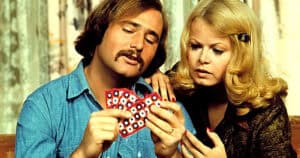
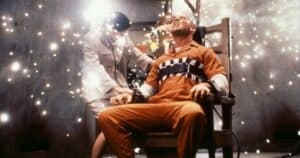
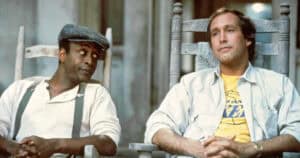
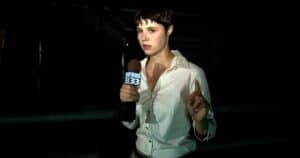
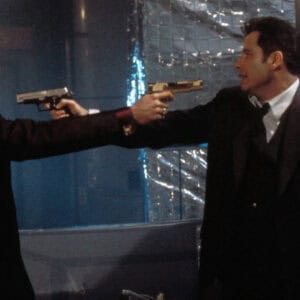
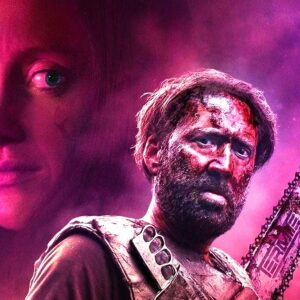
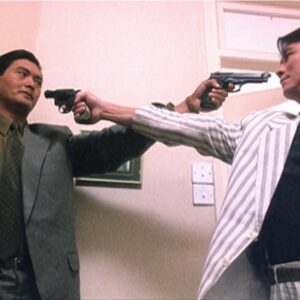
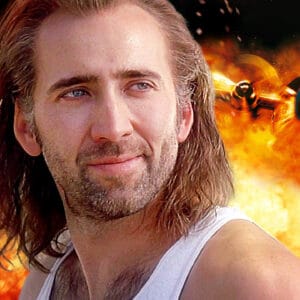
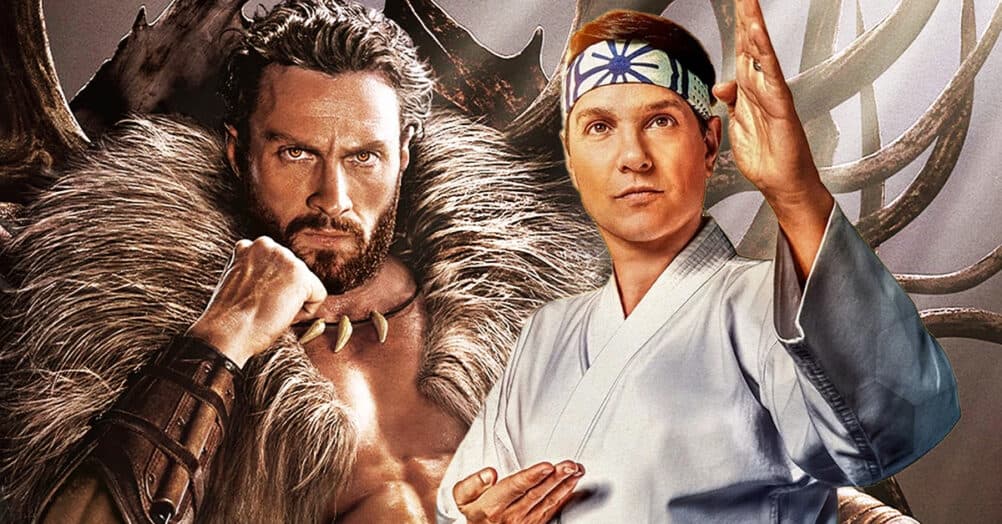
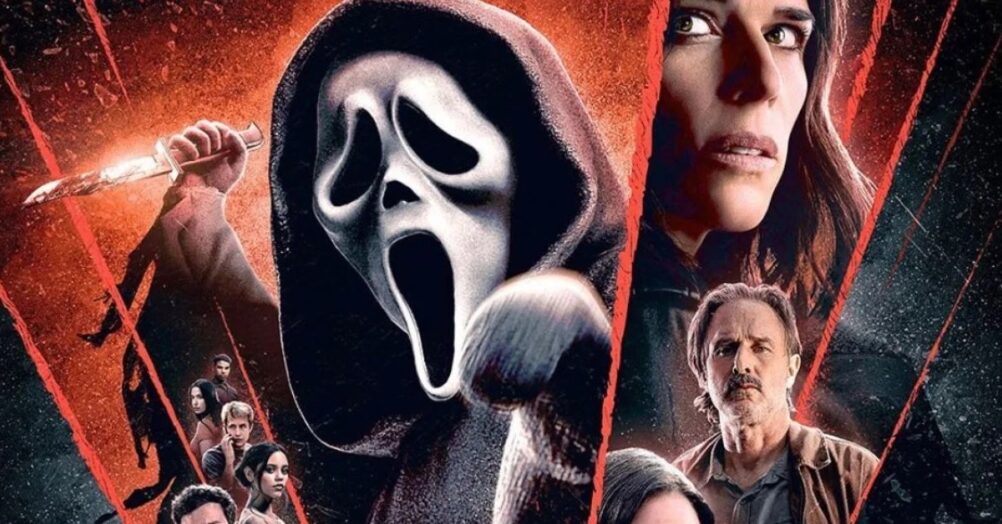
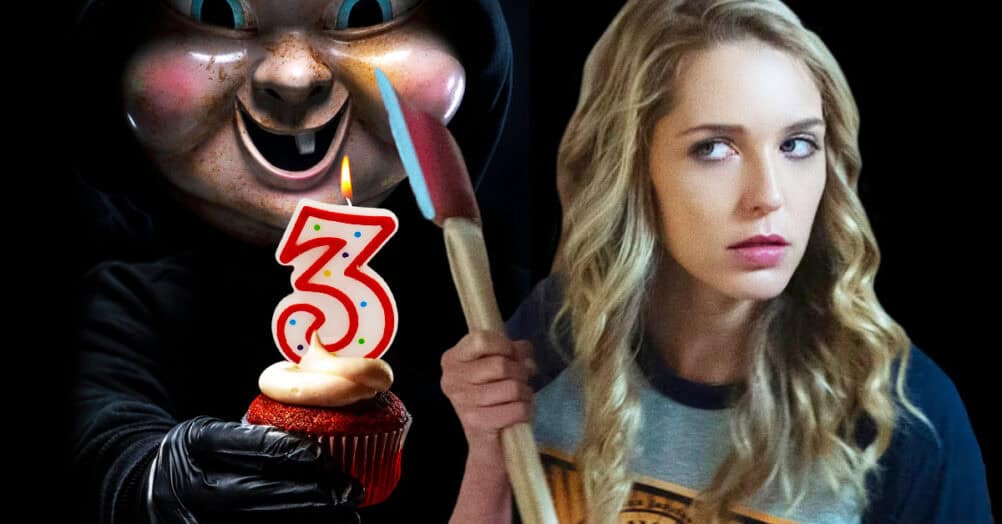
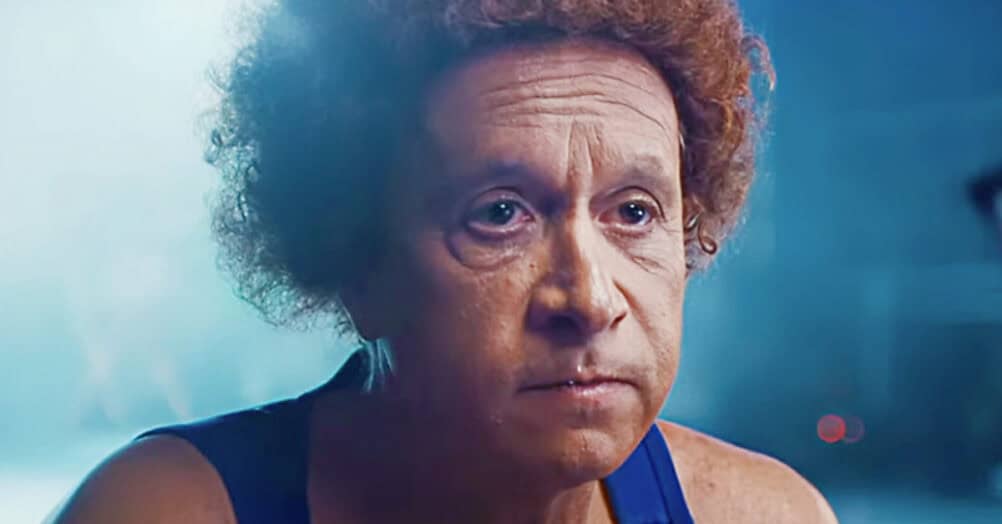
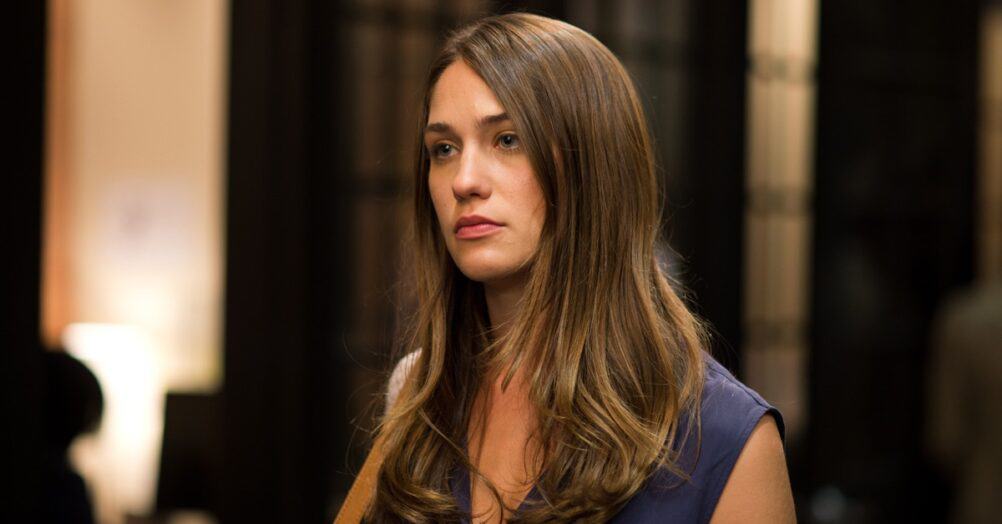
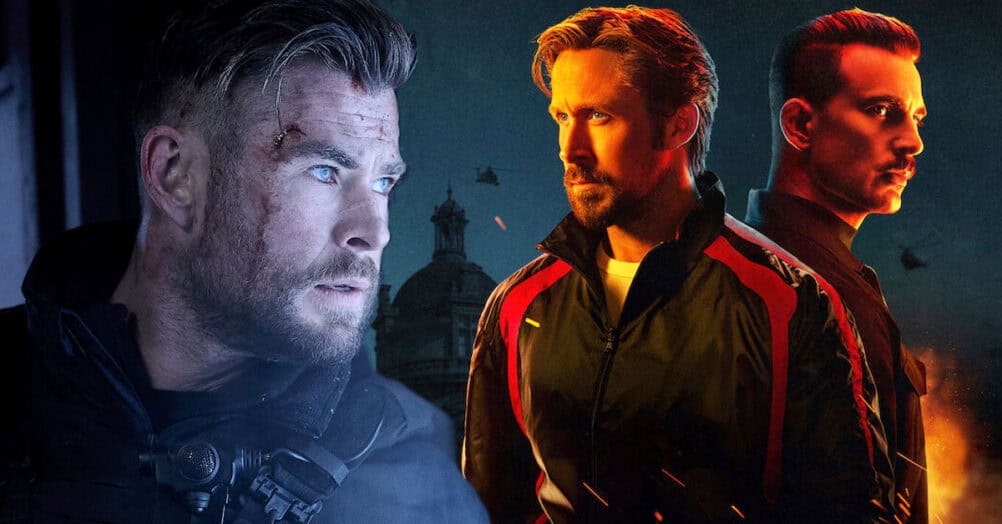
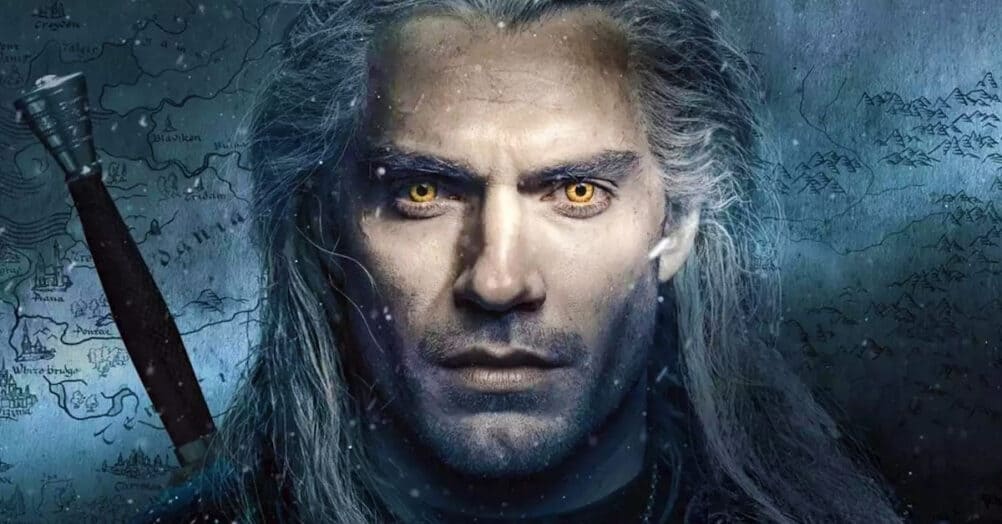
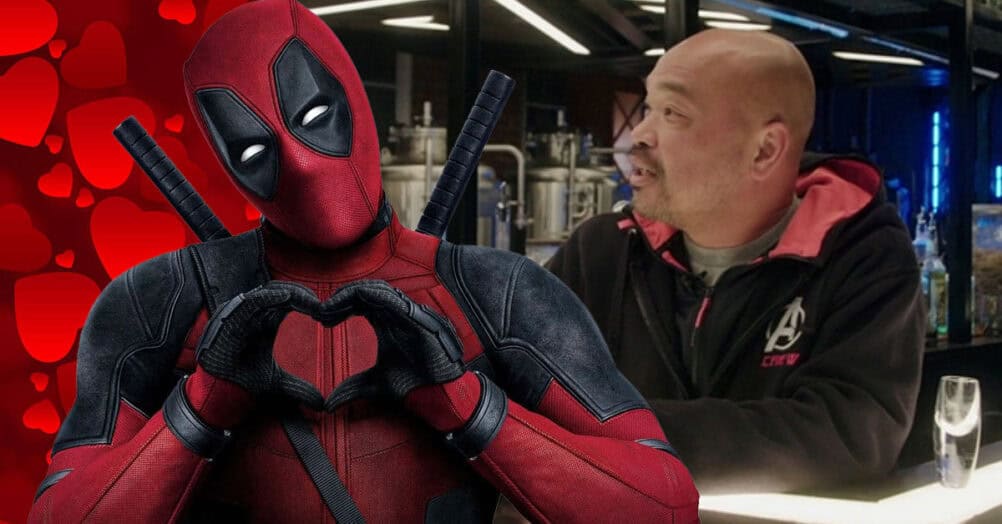
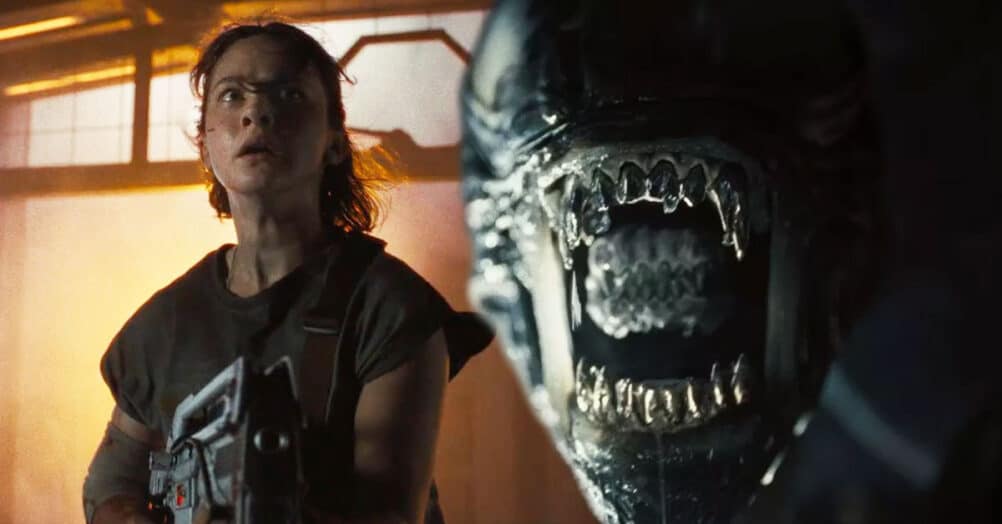
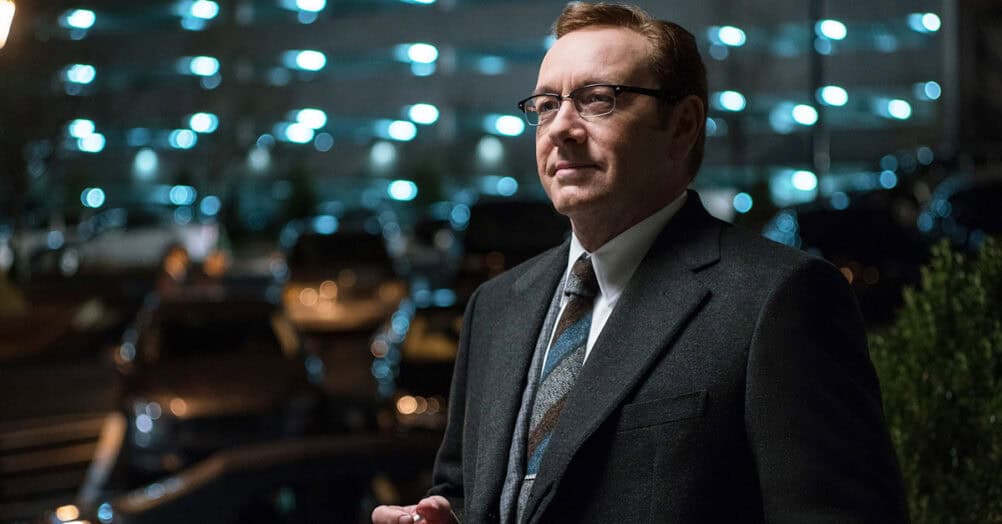
Follow the JOBLO MOVIE NETWORK
Follow us on YOUTUBE
Follow ARROW IN THE HEAD
Follow AITH on YOUTUBE